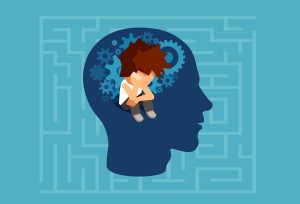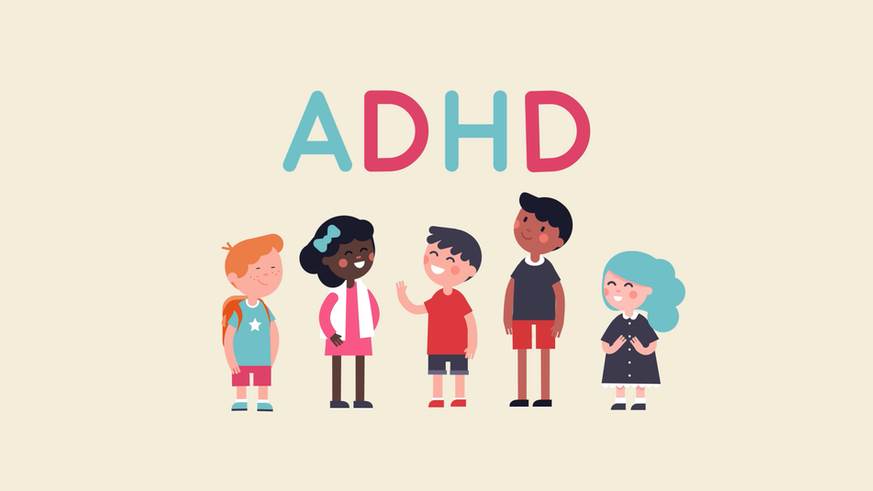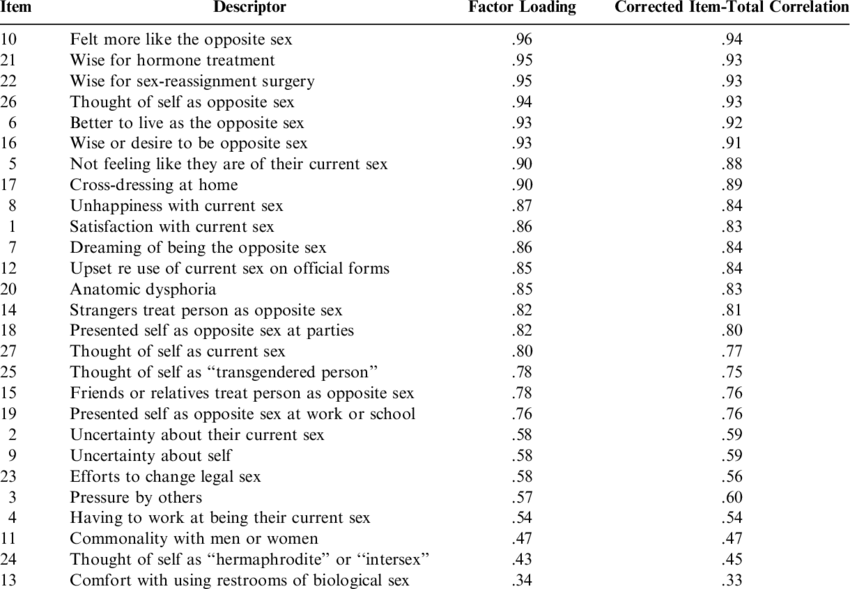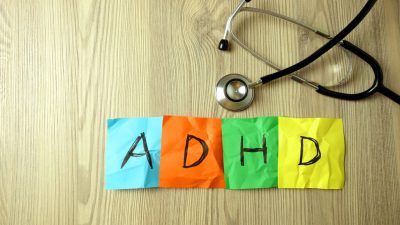ADHD Test For Kids
The Centers for Disease Control and Prevention in the United States say that 20% of children are diagnosed with ADHD. This means that if you have a child, there is a good chance that he or she will be tested for ADHD at some point. This could be in school or during some other doctor’s visit. There are three main ways to test for ADHD. One way is by asking parents. Another way is by rating scales completed by teachers or caregivers. The third way is through clinical interviews. In this article, we will discuss each of these methods and provide advice on how to address the results of an ADHD test for kids. If you have been diagnosed with ADHD, there are different ways that you can treat it. This article will discuss each method and provide advice on how to deal with the results of an ADHD test.
Contents
- 1 What Is ADHD?
- 1.1 Symptoms Of ADHD
- 1.2 Causes of ADHD In Kids
- 1.3 How Is ADHD Diagnosed?
- 1.4 What Are The Different Types Of ADHD Tests?
- 1.5 Sample Questions In An ADHD Test For Kids
- 1.6 Objectives Of ADHD Test For Kids
- 1.7 Benefits Of ADHD Test In Kids
- 1.8 How To Prepare For An ADHD Test?
- 1.9 What Happens After The ADHD Test?
- 1.10 Treatment Options Of ADHD In Kids
- 1.11 Self Care Tips Of ADHD In Kids
- 2 Conclusion
- 3 A Word From Therapy Mantra
What Is ADHD?

Attention deficit hyperactivity disorder (ADHD) is one of the most common mental disorders diagnosed in children. It can cause problems with focus, hyperactivity, and impulsiveness. ADHD can also lead to academic, social, and behavioral difficulties.
Symptoms Of ADHD
The symptoms of ADHD can vary from child to child. Some common symptoms include:
- Difficulty paying attention: Children with ADHD may have a hard time staying focused on tasks, especially if they are not interesting or if they need to be done for a long period of time.
- Hyperactivity: Children with ADHD may be constantly moving and fidgeting. They may also feel restless and unable to sit still for any length of time.
- Impulsiveness: Children with ADHD may have a hard time waiting their turn or following rules. They may also be more likely to take risks than other children their age.
Causes of ADHD In Kids

The cause of ADHD is unknown, but it is believed to be caused by a combination of genetic and environmental factors. Some possible causes include:
- Chemical imbalance in the brain: One theory about the cause of ADHD is that there may be a chemical imbalance in the brain. This could make it harder for children with ADHD to focus and control their behavior.
- Brain damage: Another theory is that ADHD may be caused by some type of brain damage, such as a head injury.
- Exposure to environmental toxins: There is some evidence that exposure to environmental toxins, like lead or mercury, can increase the risk of developing ADHD.
How Is ADHD Diagnosed?
There is no one test that can diagnose ADHD. Instead, your doctor will use a variety of tests and measures to make a diagnosis. Some common tools used to diagnose ADHD include:
- Parent and teacher questionnaires: Questionnaires can help your doctor get a better idea of how the child is behaving both at home and at school.
- Clinical assessment: A clinical assessment involves meeting with the child and talking to them about their symptoms and behavior.
- Medical history: Your doctor will also want to know if there is a history of ADHD or other mental health conditions in your family.
- Lab tests: There are no specific lab tests used to diagnose ADHD, but your doctor may order some blood tests or other screenings to rule out other possible causes of the symptoms.
What Are The Different Types Of ADHD Tests?
There are three main types of tests used to diagnose ADHD:
- Behavioral tests: These tests look at how the child is behaving and what symptoms they are displaying.
- Psychological tests: These tests measure things like intelligence, academic achievement, and emotional state.
- Neuropsychological tests: These tests assess how the child’s brain is functioning by measuring things like memory, attention, and problem-solving skills.
Sample Questions In An ADHD Test For Kids

The following are sample questions that may be asked in an ADHD test for kids. This is not an exhaustive list, but it will give you a better idea of what to expect.
- How often do you have trouble paying attention?
- How often do you fidget or move around a lot?
- Also, how often do you feel restless and unable to sit still?
- How often do you take risks without thinking about the consequences?
- How well do you usually do in school?
- Do you have any problems with friends or family members?
- How does ADHD impact your life overall?
Objectives Of ADHD Test For Kids
The objectives of an ADHD test for kids can vary depending on the child’s age and symptoms. Some common goals of testing may include:
- Diagnosing ADHD: The primary goal of any ADHD test is to diagnose the condition in children who are suspected of having it.
- Determining the severity of ADHD: A diagnosis of ADHD does not mean that a child is severely affected by the condition. However, determining the severity of ADHD can help parents and doctors create a treatment plan that is right for the child.
- Excluding other causes: Many of the symptoms of ADHD can also be caused by other conditions, such as anxiety or sleep problems. A test for ADHD can help rule out these other causes.
Benefits Of ADHD Test In Kids
There are many benefits to getting an ADHD test for kids. Some of the key benefits include:
- Getting a diagnosis: A diagnosis of ADHD can help children and their families understand why they have been struggling in school or with behavior problems. It can also provide them with a roadmap for how to address these issues.
- Receiving treatment: Children who are diagnosed with ADHD can benefit from treatment, which may include medication, therapy, and behavioral interventions.
- Getting help for siblings: If a child is diagnosed with ADHD, it is likely that their siblings will also have some degree of ADHD. Getting an ADHD test for kids can help identify these siblings so they can also get the help they need.
How To Prepare For An ADHD Test?
There is no specific preparation needed for an ADHD test. However, it can be helpful to talk to your child about what they can expect. You may also want to make sure that you have a list of any questions or concerns that you have so that you can discuss them with the doctor.
What Happens After The ADHD Test?
After the ADHD test, your doctor will meet with you to discuss the results. They will likely explain what the diagnosis means and recommend a treatment plan. Treatment for ADHD can vary depending on each child’s symptoms and needs. However, it often includes medication, therapy, and behavioral interventions.
If you have any questions about the ADHD test or the results, be sure to ask your doctor. They should be happy to answer any of your questions and help you understand what steps to take next.
Treatment Options Of ADHD In Kids

There are a variety of treatment options for ADHD in kids. The type of treatment that is best for your child will depend on their symptoms and needs.
- Medication: Medication is often the first line of treatment for ADHD. There are a number of medications available to treat ADHD. Each child may respond differently to different medications.
- Therapy: Therapy can be a helpful addition to medication treatment for ADHD. Therapists can help children learn how to manage their symptoms and better cope with the challenges of ADHD.
- Behavioral interventions: Behavioral interventions, such as behavior modification therapy, can also be helpful in treating ADHD. These interventions teach kids new skills and strategies to help them better manage their symptoms.
Therapy Options Of ADHD In Kids
There are a variety of therapy options available for ADHD in kids. The type of therapy that is best for your child will depend on their symptoms and needs.
- Cognitive-behavioral therapy: Cognitive-behavioral therapy (CBT) is a type of therapy that helps children learn how to manage their thoughts and emotions. This can be helpful in managing the symptoms of ADHD.
- Interpersonal therapy: Interpersonal therapy (IPT) is a type of therapy that helps children build and maintain healthy relationships. This can be helpful for children with ADHD who have difficulty with social interactions.
- Family therapy: Family therapy can be helpful in addressing the challenges that ADHD can cause within the family. It can help families learn better ways to communicate and support each other.
- Parent training: Parent training is a type of therapy that helps parents learn how to best support their child with ADHD. This can be helpful in improving ADHD symptoms.
If you are considering therapy for your child with ADHD, be sure to talk to your doctor about the different options available. They can help you decide which type of therapy is best for your child.
Self Care Tips Of ADHD In Kids

Self-care is an important part of managing ADHD. Here are a few self-care tips for kids with ADHD:
- Get enough sleep: Most kids with ADHD need around nine hours of sleep per night. Make sure your child gets enough sleep each night to help them manage their symptoms.
- Create a routine: A routine can help kids with ADHD stay organized and focused. Make sure your child has a set routine for homework, chores, and bedtime.
- Avoid distractions: Kids with ADHD are easily distracted. Help them avoid distractions by keeping their environment organized and quiet.
- Set goals: Help your child set small goals to help them stay focused and motivated. These can be simple goals, such as completing their homework on time or cleaning their room.
- Reward good behavior: Reward your child for good behavior with positive reinforcement. This can help them stay motivated and encouraged.
The best way to help a child with ADHD is to work together with your doctor to find the right treatment plan. There are many options available, so there is sure to be a plan that fits your child’s needs. Be patient and keep trying until you find the right treatment for your child.
Conclusion
ADHD tests for children can help parents and teachers better understand how ADHD might affect their children. They can then figure out what to do to help the child with focus, attention, or hyperactivity. If you’re concerned that your child may have ADHD, it’s important to get an accurate diagnosis as soon as possible. The earlier a child receives treatment for ADHD, the more likely they are to reach their full potential. Have you had your child tested for ADHD? What was the experience like? Did the test results confirm your suspicions? Let us know in the comments below.
A Word From Therapy Mantra
Your mental health — Your psychological, emotional, and social well-being — has an impact on every aspect of your life. Positive mental health essentially allows you to effectively deal with life’s everyday challenges.
At TherapyMantra, we have a team of therapists who provide affordable online therapy to assist you with issues such as depression, anxiety, stress, workplace Issues, addiction, relationship, OCD, LGBTQ, and PTSD. You can book a free therapy or download our free Android or iOS app.


